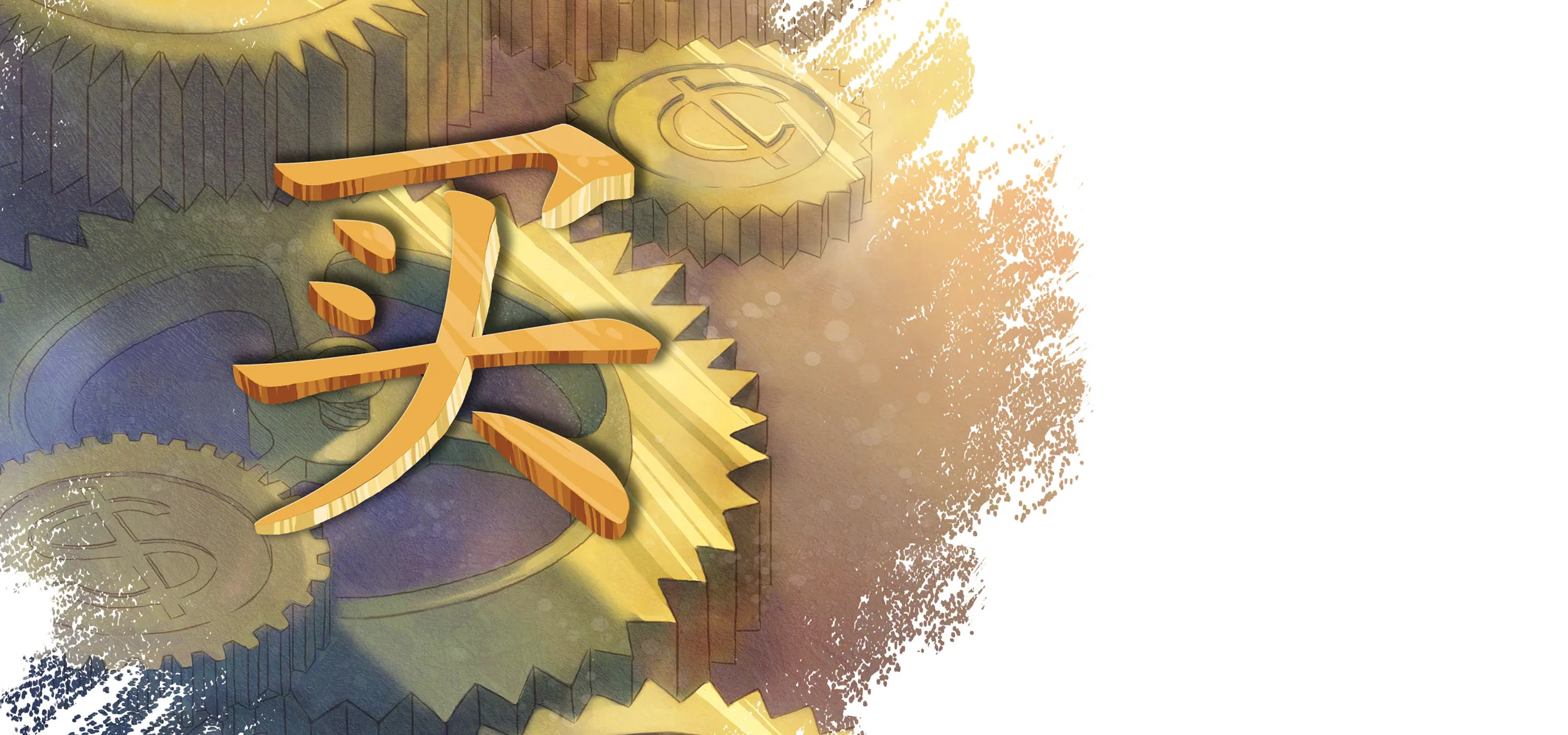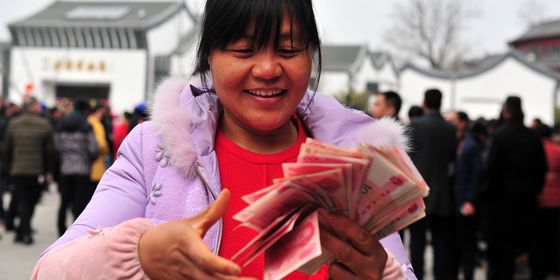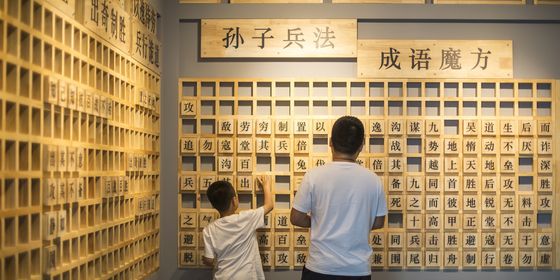All I need this holiday season is to buy, buy, buy
It’s the holiday season again and that can only mean one thing: rampant consumerism. In urban China, people learn Christmas carols primarily in shopping malls and celebrate the New Year by taking advantage of holiday discounts on Taobao. In keeping with this modernday ritual, our character this time is 买 (mǎi, purchase, buy).
The traditional version for 买 is 買, on which you can still find traces of its pictographic past. On top of the character is the 罒 (wǎng, net) radical, and on the bottom, the 贝 (bèi, cowry shells) radical. As cowry shells were used as an early form of currency in China and many parts of the world, together, they form the image of goods exchanged with currency and put into a net.
By the same logic, the character for “sell” is a slight variation of “buy”—adding an “out” radical on top of the character, indicating the reverse flow of goods from the net. Originally created based on the image of grass growing out of the earth, the “out” radical evolved into the “十” radical. Put this simplified radical on top of 买, you get 卖 (mài) or “sell”.
Naturally, when put together, 买卖 (mǎimai) means “business” or “transaction.” Running a small business is 做买卖 (zuò mǎimai) and owners of small businesses call themselves 买卖人 (mǎimairén). A buyer is 买主 (mǎizhǔ) or 买家 (mǎijiā), the latter of which is used more often these days on Taobao, whereas a seller is 卖家 (màijiā).
The goods that are bought and sold go right behind these characters, like “to buy fruits” or 买水果 (mǎi shuíguǒ), but sometimes, these transactions may not be literal. For instance, 买单 (mǎidān, “buy bill”) is what you say to a waiter or waitress when asking for the bill; 买账 (mǎizhàng, also “buy bill” but with an alternative character), on the other hand, actually means “to acknowledge somebody’s superiority or seniority,” often grudgingly.
Even if you only know the basics about China’s traditional social customs, you realize that business is, often, not just business. And to strike a deal with a company on the more conservative end of the spectrum can be a nightmare soaked with baijiu. As Chinese businessmen often say, “买卖不成仁义在 (Mǎimai bù chéng rényì zài),” which means “friendly relations develop between buyers and sellers even if they fail to clinch a deal.” A relationship successfully established is equally valuable as money changing hands.
The intertwined nature of business and personal relations mean that social interaction can often be described with terms of trade. To “buy face” or 买面子 (mǎi miànzi) is “to stretch rules out of respect for somebody.” For example, 不是我不买你的面子,这件事实在不好办。(Bú shì wǒ bú mǎi nǐ de miànzi, zhè jiàn shì shízài bù hǎo bàn.)—“It’s not that I wouldn’t buy you some face (make an exception in your case), but I’m really not in a position to do so.”

The opposite of “buy face” is “sell a favor,” or 卖人情 (mài rénqíng, do somebody a favor). For instance, 在工作中,他不喜欢卖人情,也不会偏袒熟人。(Zài gōngzuò zhōng, tā bù xǐhuan mài rénqíng, yě bú huì piàntǎn shúrén. When it comes to work, he does not like doing people favors and won’t be partial to his friends.) “Sell a favor” is often used in the negative, because it has a connotation of shady dealings and personal returns.
Even when they buy something in the sense of trade, people are not always paying for what they say they are. For instance, the euphemism for paying for sex is “to buy spring” or 买春 (màichūn), which is a word with quite a long history. Turns out back in the Tang Dynasty (618 – 907), “spring” was widely used in the names of alcoholic drinks, because liquor was usually brewed in winter and would be ready in the coming spring. Ever the romantics, elegant Tang poets and literati claimed that the money they spent in the brothel was for the spring wine served there, hence the phrase. But what if one is truly paying for the drinks for the purpose of getting drunk on a night out? Use 买醉 (mǎizuì, “to buy drunkenness”).
We experience all kinds of sales tricks day in and day out, but one ancient fable over 2,000 years ago shows how both the seller and buyer can miss the mark entirely. Once there was a jeweler who wanted to sell a pearl. And like many sellers today, he packaged it to the hilt. His efforts were so over the top that he used precious wood to carve a case to hold it, fumigated the case with cinnamon and thyme, and adorned it with jade and emerald. The buyer, dazzled by the glittering case, overlooked the item with value; he kept the case but returned the pearl even though he paid the full price. This fable told by ancient philosopher Han Fei gave rise to the idiom 买椟还珠 (mǎi dú huán zhū, buy the case but return the pearl). The philosopher’s original intention was to criticize the seller, likening him to scholars at the time who advocated their ideas of managing the state with flowery, exaggerated language, but no substance. Later, the target of criticism switched to the buyer (maybe because the audience realized that from the point of view of the pearl-seller, it was actually not a bad deal). The idiom now means “lack of judgment and acumen.”
So, during this holiday season, try not to “buy the case but return the pearl.” ’Tis the season not just for 买, but to remember what’s really important about this special time of the year: family, friends, and a brand new beginning.
On the Character: 买 is a story from our issue, “Taobao Town.” To read the entire issue, become a subscriber and receive the full magazine.













